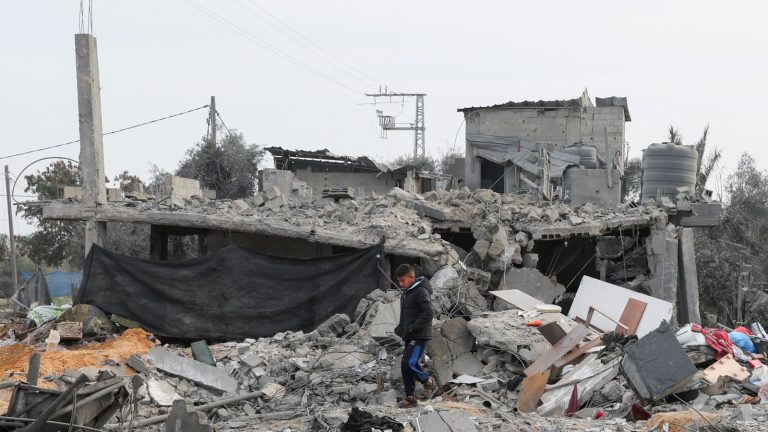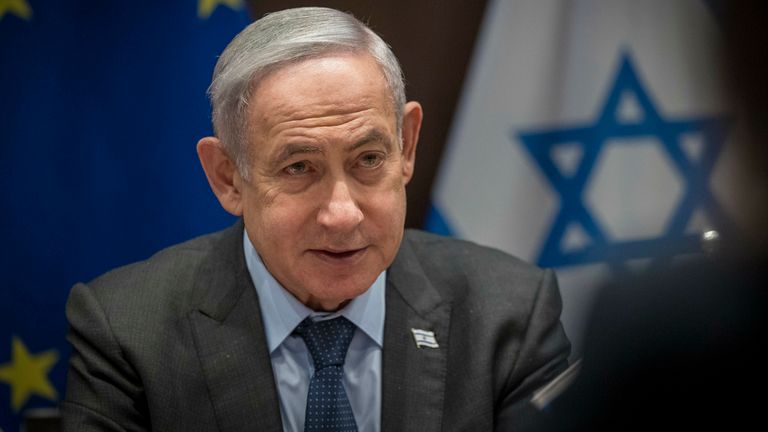Israel wants open control over security and civil affairs in the Gaza Strip, according to a long-awaited post-war plan drawn up by Prime Minister Benjamin Netanyahu.
It was quickly rejected by Palestinian leaders, as it conflicts with Washington's vision for the besieged Strip.
Netanyahu submitted the two-page document to the security cabinet late Thursday for approval.
Divisions are over Gaza The future led to escalation of general tensions between Israel And the United States, its closest ally.
The Biden administration seeks to establish final Palestinian rule in Gaza and the Israeli-occupied West Bank, as a prelude to statehood and the establishment of a Palestinian state. The two-state solution to tensions – an outcome strongly opposed by Netanyahu and his right-wing government.
Netanyahu's plan stipulates carefully selecting Palestinians in Gaza to administer the Strip.
Meanwhile, ceasefire efforts appear to be gaining momentum, as mediators will present a new proposal at a high-level meeting expected this weekend in Paris.
The United States, Egypt and Qatar have been struggling for weeks to reach an agreement that could stop Israel's devastating assault on Gaza, sparked by the deadly Hamas massacre on October 7 that left about 1,200 people dead and saw 250 others taken hostage.
Gaza health officials said the devastating retaliatory air and ground offensive killed more than 29,500 Palestinians and wounded nearly 70,000 others.
Netanyahu's plan, although lacking in details, represents the first time he has presented an official post-war vision.
It reaffirms that Israel is determined to crush Hamas, the armed group that invaded the Gaza Strip in 2007.
Opinion polls indicate that the majority of Palestinians do not support Hamas, but the movement has deep roots in Palestinian society.
Critics, including some in Israel, say the goal of eliminating Hamas is unattainable.
Netanyahu's plan calls for giving the Israeli army freedom to operate throughout a demilitarized Gaza Strip after the war to thwart any security threat.
It says Israel will create a buffer zone inside Gaza, which is likely to raise objections from the United States.
The plan also calls for Gaza to be governed by local officials who it says “will not be linked to, nor receive money from, countries or entities that support terrorism.”
It is not clear whether any Palestinian would agree to such roles.
Over the past decades, Israel has repeatedly tried and failed to establish carefully selected local Palestinian governing councils.
The Palestinian Authority, which runs enclaves in the Israeli-occupied West Bank, denounced Netanyahu's plan as “colonial and racist,” saying it would amount to an Israeli reoccupation of Gaza.
Israel withdrew its soldiers and settlers from Gaza in 2005, but retained control of access to the Strip.
The White House wants to see a reformed Palestinian Authority governing Gaza and the West Bank as a step toward establishing a Palestinian state.
The United States sought to reduce Netanyahu's resistance by raising the possibility of normalizing relations between Israel and Saudi Arabia.


